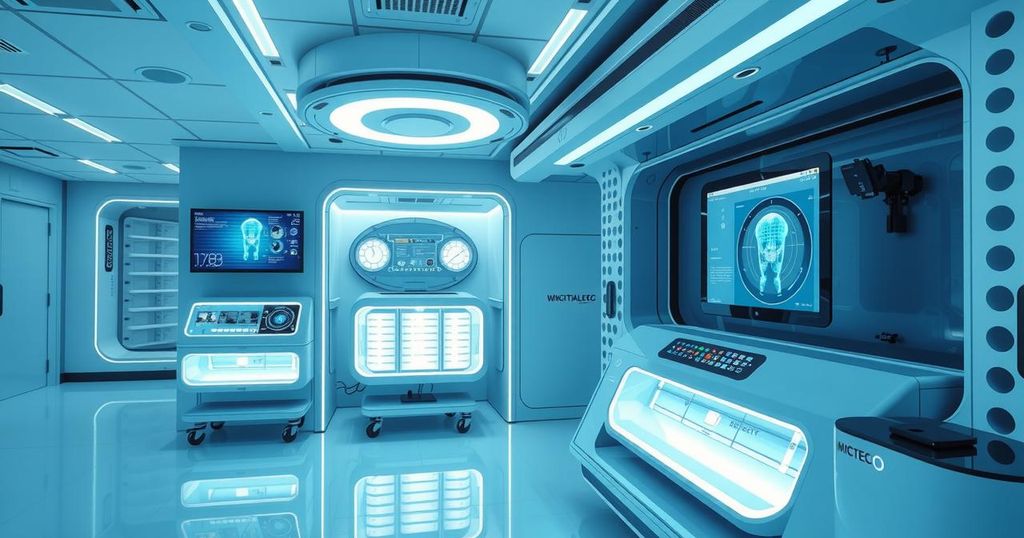AI Breakthrough Enhances Embryo Selection in Assisted Reproductive Technology
Researchers have integrated AI into embryo selection, achieving 97% accuracy in classifying embryonic stages. This advancement addresses global infertility issues and utilizes synthetic data, notably improving upon previous methods. The study shows the potential for enhanced ART outcomes and emphasizes ongoing ethical data use in reproductive technology.
A groundbreaking development in assisted reproductive technology is revolutionizing embryo selection through the integration of artificial intelligence (AI). Researchers achieved a commendable 97% accuracy in classifying embryonic cell stages, a crucial advancement addressing the infertility dilemma affecting one in six individuals of reproductive age globally, according to the World Health Organization.
In the study published in Scientific Reports, researchers overcame the limitations of conventional embryo data, often hindered by privacy and ethical concerns, using synthetic data. They employed two advanced generative models—the Latent Diffusion Model (LDM) and Generative Adversarial Network (GAN)—to create artificial images of embryos across various developmental stages: 2-cell, 4-cell, 8-cell, morula, and blastocyst.
Manual assessments of embryo quality have traditionally been subjective and error-prone, resulting in implantation success rates below 30%. By incorporating AI algorithms to evaluate embryos using comprehensive image data, the researchers hope to enhance objectivity and improve outcomes in ART treatments.
The classification models were trained with a combination of real and synthetic embryo images, thus boosting the dataset size and accuracy. The accuracy of models trained with both real and synthetic images reached 97%, compared to 94.5% when only real images were used, showcasing significant improvement in classification performance.
To validate their synthetic images, a Turing test was conducted with four embryologists distinguishing between real and artificial images. The diffusion model demonstrated a notable advantage, deceiving embryologists in 66.6% of trials, compared to the GAN’s 25.3%, underscoring the fidelity of the synthetic images. The low Fréchet inception distance scores further confirmed the success of the diffusion model.
This study holds dual significance: it enhances reliable embryo selection processes and addresses data scarcity in the ART sector. The research team aims to create a publicly available dataset of both synthetic and real embryos for future reproductive healthcare studies.
The integration of various generative models may improve classification capabilities further, as indicated by the research team’s findings. Their work aligns with prior studies suggesting that diverse synthetic data sources foster improved robustness in AI models.
The ramifications of this research could lead to higher success rates in ART treatments and better patient outcomes. The synergy of AI and human expertise may transform clinical practices in reproductive health, enhancing efficiency and objectivity. As ART continues to benefit from technological advancements, future efforts will prioritize ongoing optimization of synthetic data use while upholding ethical standards in patient anonymity and data protection.
The integration of AI in embryo selection marks a promising turning point for assisted reproductive technology, significantly increasing classification accuracy and potentially transforming ART outcomes. By harnessing synthetic data and ensuring ethical practices, the study sets the stage for future innovations in reproductive healthcare, ultimately offering hope to those struggling with infertility.
Original Source: evrimagaci.org




Post Comment